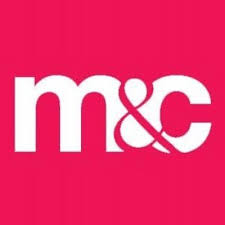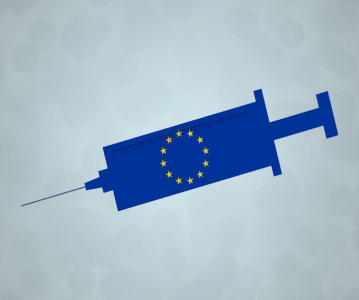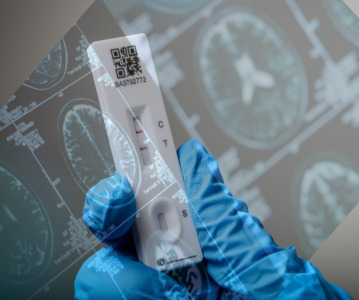US Organisations Reaping Rewards of Public Investment in Genomic Research, with Europe and Asia Lagging Behind

Public research organisations are driving advances in research into genome-related technologies and their use in medicine and industry, with the private sector lagging behind, according to research by Marks & Clerk, released as part of its Life Sciences Report 2014: Genome 2.0, at the BIO International Convention 2014 in San Diego. The research further highlights the global disparity, with the advantage almost entirely enjoyed by the US, whilst Europe and Asia trail behind, despite over €1 billion of public funding coming from the EU for research into personalised medicine between 2007 and 2012.
The report looks at intellectual property trends in the genome market over the past decade since the completion of the human genome in 2003. The research has revealed that areas of personalised medicine and synthetic biology are showing commercial promise, though public organisations outnumbered private organisations among the top filers of patent applications related to these fields. Meanwhile, in the more mature sequencing technology market, established private organisations outpace public entities, with past disruptive technologies such as next generation sequencing having become standard practice and new disruptive technologies emerging that can further challenge the status quo.
Innovation in Europe is driven by relatively few organisations, including Swiss-based Roche and French public research bodies CNRS (Centre National de la Recherche Scientifique) and INSERM (Institut National de la Santé et de la Recherche Médicale).
Patent applications have shown increases in sequencing technology and personalised medicine since 2003, despite a dip in 2010 attributed to the delayed effects of the financial crisis. Application levels in synthetic biology are only now returning to the high levels seen in 2004 after a period of fluctuation, as a host of new technologies come to the fore.
Dr Gareth Williams, European Patent Attorney, life sciences specialist and Partner at Marks & Clerk, comments: “10 years on from the mapping of the human genome, the markedly strong performance of US public bodies reflects badly on Europe, with European universities and research bodies surprisingly under-represented among the large filers of patent applications. Although we are seeing increasingly strong performances from European organisations like CNRS and INSERM in France and some European private companies, Europe needs more focused commercialisation of local research to become a challenger on the international stage in this vital area of medical research. Hopefully, the €1 billion that has already been invested by the EU in personalised medicine will lead to increases in filings from European organisations in the coming years. Likewise, the strong UK push behind synthetic biology can only be good news for UK organisations in this field.
“Patent application figures in sequencing, personalised medicine and synthetic biology tell us a great deal about deal about the stage of development each technology has reached. The prevalence of private companies filing patents for sequencing technology shows a maturity in the market as key players enjoy dominant positions they have carved out for themselves. Meanwhile, the high number of filings by public bodies in personalised medicine and particularly in synthetic biology depicts two emerging technologies, with private companies on the whole showing less confidence.”
Related News
-
News Patients vs Pharma – who will the Inflation Reduction Act affect the most?
The Inflation Reduction Act brought in by the Biden administration in 2022 aims to give better and more equitable access to healthcare in the USA. However, pharma companies are now concerned about the other potential costs of such legislation. -
News CPHI Podcast Series: What does the changing US Pharma market mean for industry and patients alike?
In this week's episode of the CPHI Podcast Series Lucy Chard, Digital Editor for CPHI Online is joined by James Manser to discuss the political and market changes in the US pharma field. -
News CPHI Barcelona Annual Report illuminates industry trends for 2024
The CPHI Annual Survey comes into it’s 7th year to report on the predicted trends for 2024. Over 250 pharma executives were asked 35 questions, with their answers informing the industry landscape for the next year, spanning all major pharma marke... -
News Which 10 drugs are open to price negotiation with Medicare in the USA?
The Centres for Medicare & Medicaid Services, under the Biden administration in the USA, has released a list of the 10 drugs that will be open to price negotiations as part of the new legislation under the Inflation Reduction Act (IRA). -
News EU Medical Devices Regulation causes unintended disappearances of medical devices for children, doctors state
Doctor groups and associations have appealed to the EU to correct the EU Medical Devices Regulation law that may cause unintended shortages of essential drug and medical devices for children and rare disease patients. -
News 10 Major Drug Approvals So Far in 2023
Last year, 37 novel drugs were approved by the FDA, this was a high number for such a category, and covered many fields including oncology, demonstrating how promising further research is, and how it is only continuing to build. To date, there are alre... -
News Detecting Alzheimer's disease with a simple lateral flow test
A novel rapid diagnostic test for early-stage Alzheimer's disease has been developed using a biomarker binder from Aptamer Group along with technology from Neuro-Bio, the neurodegenerative disease experts. -
News CPHI Podcast Series: outsourcing and manufacturing trends
Listen to the CPHI Podcast Series this June to hear Gil Roth of the PBOA speak with Digital Editor Lucy Chard about the biggest trends and topics to watch in pharma outsourcing and manufacturing at the minute.
Position your company at the heart of the global Pharma industry with a CPHI Online membership
-
Your products and solutions visible to thousands of visitors within the largest Pharma marketplace
-
Generate high-quality, engaged leads for your business, all year round
-
Promote your business as the industry’s thought-leader by hosting your reports, brochures and videos within your profile
-
Your company’s profile boosted at all participating CPHI events
-
An easy-to-use platform with a detailed dashboard showing your leads and performance







